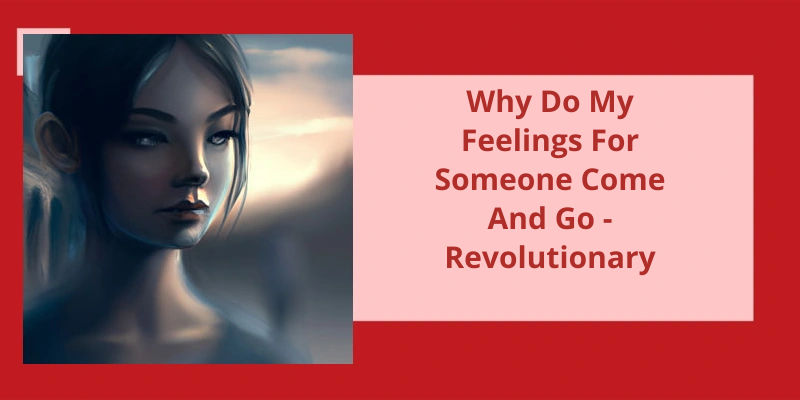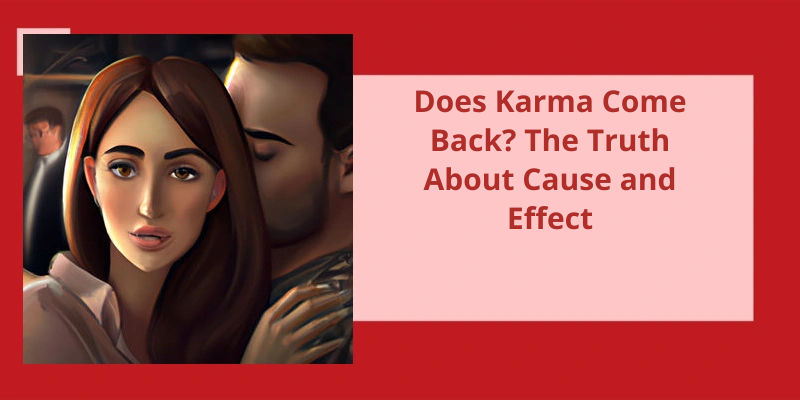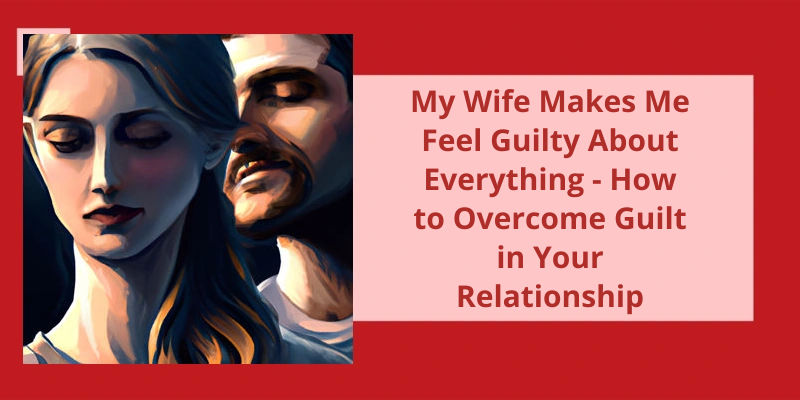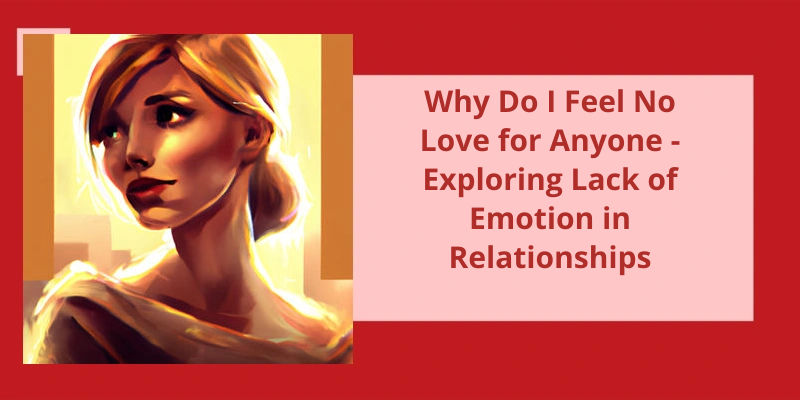Emotions are complex and ever-changing, especially when it comes to matters of the heart. It isn’t uncommon to find ourselves caught in a whirlwind of feelings for someone, only to have them wane and disappear seemingly overnight. This phenomenon, though perplexing, is a natural part of the human experience. Understanding why our feelings for someone come and go can be revolutionary in the sense that it allows us to navigate our emotions more effectively and embrace the ebb and flow of our affections. By delving into psychological, biological, and sociological factors, we can shed light on this enigmatic phenomenon, ultimately providing insight for those who find themselves in this emotional roller coaster. Whether it be the fickle nature of attraction, the impact of personal growth, or the influence of external circumstances, this exploration seeks to uncover the revolutionary complexities behind the transitory nature of our feelings for someone. So, join me on this journey of self-discovery and exploration as we unravel the revolutionary truth behind the puzzling question: Why do my feelings for someone come and go?
Can Feelings Come and Go?
Can feelings come and go? From right here, looking down at yourself, you can observe your feelings as they do what feelings do. It’s just like watching the oceans waves, in and out, they rise up and then fall away. Remember this: no matter how intense your feelings are, they’ll always eventually pass.
Feelings have a natural ebb and flow, just like the tide. They can be powerful and overwhelming one moment, and then completely fade away in the next. It’s a normal part of being human to experience a range of emotions, and it’s perfectly okay for your feelings for someone to come and go.
There are many factors that can influence the fluctuations of emotions. External circumstances, such as the way someone treats you or the amount of time you spend together, may play a role in how you feel at any given moment. Internal factors, such as your own thoughts and insecurities, can also affect the intensity and duration of your feelings.
It’s important to remember that feelings aren’t permanent. They can change and evolve over time. What you feel for someone today may not be the same tomorrow, and thats okay. It doesn’t mean that your previous feelings were invalid or untrue, it simply means that you’re a dynamic and complex individual with ever-changing emotions.
Instead of trying to resist or control your feelings, it can be helpful to embrace them as they come and go. Allow yourself to fully experience and process each emotion, trusting that it’s a natural part of your journey. By acknowledging and accepting the impermanence of emotions, you can cultivate a greater sense of self-awareness and inner peace. So, let your feelings flow like the oceans waves, knowing that they’ll always pass in their own time.
Recognizing the Difference Between Temporary Emotions and Long-Lasting Feelings
- Temporary emotions often arise quickly and may fade just as fast
- Long-lasting feelings, on the other hand, endure over a longer period of time
- Temporary emotions are often influenced by external events or circumstances
- Long-lasting feelings tend to be more deeply rooted and may have a lasting impact on our overall well-being
- Temporary emotions can be fleeting and may change depending on the situation
- Long-lasting feelings are more consistent and stable, regardless of external factors
- Recognizing the difference between temporary emotions and long-lasting feelings can help us better understand ourselves and our emotional experiences
- It can also enable us to make more informed decisions and respond appropriately to our emotions
- Understanding our emotions can lead to a greater sense of self-awareness and emotional intelligence
- By recognizing the difference between temporary emotions and long-lasting feelings, we can develop healthier coping mechanisms and improve our overall well-being
There are various reasons why one might suddenly stop having feelings for someone. These shifts in emotions can be influenced by the discovery of incompatibility, the realization that feelings were based on lust rather than love, the development of new feelings for someone else, or an aversion to commitment. Unraveling the complexities behind a change of heart requires a deeper exploration of the individual circumstances and emotions involved.
Why Do I Suddenly Stop Having Feelings for Someone?
Why do my feelings for someone come and go? It’s a question that many of us have pondered at some point in our lives. The truth is, a sudden change in heart is a complicated subject and can’t always be explained with one simple answer. There are various factors that can contribute to this phenomenon, and understanding them can shed some light on the situation.
One possible reason for the wavering of emotions could be the discovery of an area of incompatibility. As you spend more time with someone, you may start to notice differences in values, interests, or goals that clash with your own. These disparities can create a sense of disillusionment and eventually lead to a diminishing of feelings. It’s natural to reevaluate a relationship when such incompatibilities arise.
Another possibility is that your feelings weren’t rooted in love, but rather in lust or infatuation. These intense initial feelings can oftentimes cloud our judgement and make us believe that we’re experiencing true love. However, as time goes on and the infatuation fades, we may come to realize that our feelings weren’t as deep or genuine as we initially believed.
Additionally, developing feelings for someone else can also cause a change in emotions. Human beings are complex creatures, and it isn’t uncommon for our hearts to be pulled in different directions. As you meet new people and form connections, it’s natural for your feelings to ebb and flow, as you navigate the complexities of multiple romantic interests.
Lastly, some individuals may find that they struggle with the concept of commitment, leading to the inconsistent nature of their feelings. The idea of settling down and committing to one person can be intimidating and overwhelming for some. As a result, they may find themselves second-guessing their emotions, and backing away when things start to get serious.
The sudden fluctuation of feelings for someone can be attributed to a multitude of factors. It could be due to discovering incompatibilities, realizing that initial feelings were rooted in lust, developing feelings for someone else, or struggling with commitment. It’s essential to listen to yourself and examine the underlying reasons for these shifts in emotions in order to make informed decisions about your relationships.
How Past Experiences and Trauma Can Impact Feelings for Someone
Past experiences and trauma can have a significant impact on our feelings for someone. When we’ve experienced negative or hurtful experiences in past relationships, it can create a fear of getting hurt again. This fear can cause our feelings for someone to fluctuate, as we may constantly question their intentions or doubt the potential for a healthy and fulfilling relationship.
Additionally, unresolved trauma can also influence our feelings towards someone. Traumatic experiences can result in emotional numbing, difficulties with trust, and fear of vulnerability. These emotional barriers can make it challenging to fully embrace and maintain consistent feelings for someone.
It’s important to recognize the role that past experiences and trauma play in our emotional connections. Seeking therapy or support can provide an opportunity to process and heal from past wounds, allowing for more stable and authentic feelings in future relationships.
Conclusion
In conclusion, the nature of human emotions towards someone can be complex and dynamic, as they often come and go. This phenomenon can be attributed to a variety of factors, such as personal circumstances, external influences, and the ever-evolving nature of human connections. Understanding this ebb and flow of feelings requires a revolutionary perspective that acknowledges the multifaceted nature of human emotions and the intricate dynamics of relationships. It’s essential to embrace the fluctuating nature of these feelings and recognize that they don’t necessarily indicate a reduced significance or depth of connection. Instead, viewing the evolving nature of emotions as a natural part of personal growth and relationship development allows for a more nuanced understanding of human experiences and opens the door to embracing the constant evolution of our emotional landscape. Rather than being disheartened by the fleeting nature of our feelings, we can learn to navigate and appreciate the revolutionary nature of our emotional journeys.






